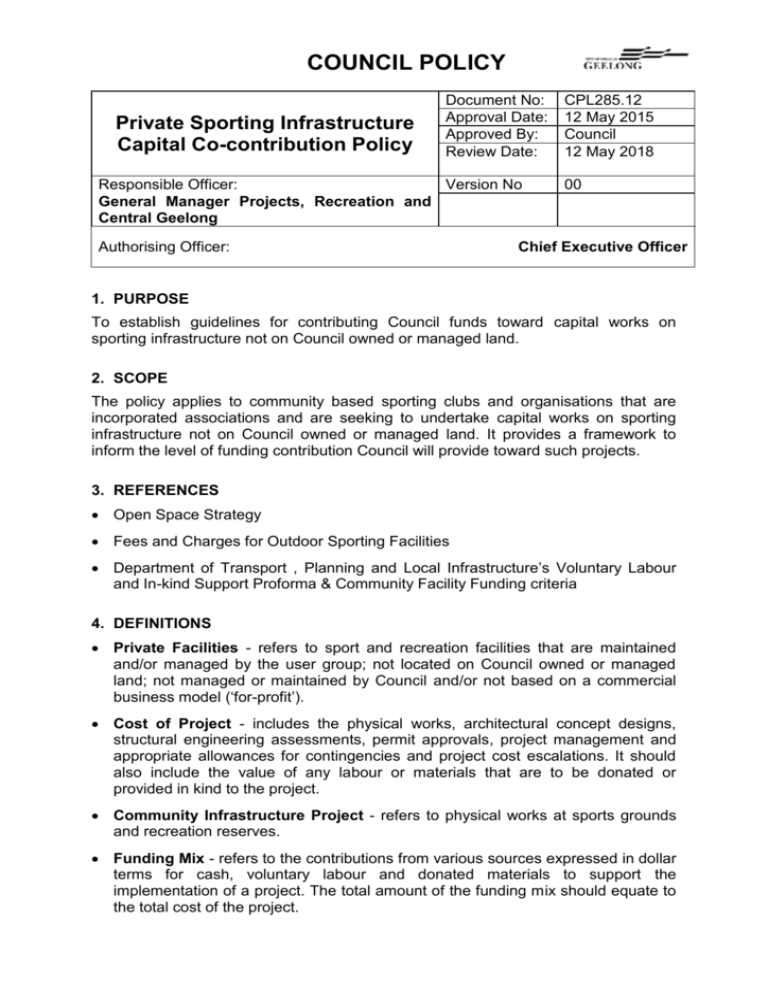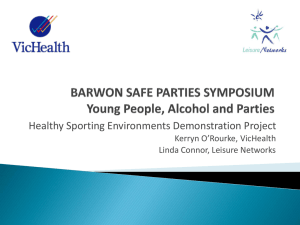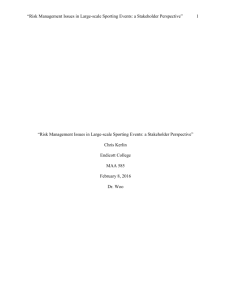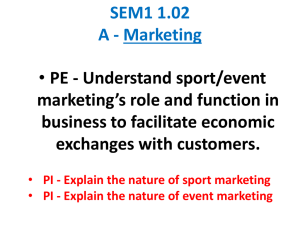council policy - City of Greater Geelong
advertisement

COUNCIL POLICY Private Sporting Infrastructure Capital Co-contribution Policy Document No: Approval Date: Approved By: Review Date: Responsible Officer: Version No General Manager Projects, Recreation and Central Geelong Authorising Officer: CPL285.12 12 May 2015 Council 12 May 2018 00 Chief Executive Officer 1. PURPOSE To establish guidelines for contributing Council funds toward capital works on sporting infrastructure not on Council owned or managed land. 2. SCOPE The policy applies to community based sporting clubs and organisations that are incorporated associations and are seeking to undertake capital works on sporting infrastructure not on Council owned or managed land. It provides a framework to inform the level of funding contribution Council will provide toward such projects. 3. REFERENCES Open Space Strategy Fees and Charges for Outdoor Sporting Facilities Department of Transport , Planning and Local Infrastructure’s Voluntary Labour and In-kind Support Proforma & Community Facility Funding criteria 4. DEFINITIONS Private Facilities - refers to sport and recreation facilities that are maintained and/or managed by the user group; not located on Council owned or managed land; not managed or maintained by Council and/or not based on a commercial business model (‘for-profit’). Cost of Project - includes the physical works, architectural concept designs, structural engineering assessments, permit approvals, project management and appropriate allowances for contingencies and project cost escalations. It should also include the value of any labour or materials that are to be donated or provided in kind to the project. Community Infrastructure Project - refers to physical works at sports grounds and recreation reserves. Funding Mix - refers to the contributions from various sources expressed in dollar terms for cash, voluntary labour and donated materials to support the implementation of a project. The total amount of the funding mix should equate to the total cost of the project. Capital Replacement - includes the replacement of assets or facilities at the end of their life-cycle with like-for-like replacement. Capital Improvement - refers to enhancing an existing asset to provide a higher level of service that will increase the life of the asset beyond that which it had originally. New Works - includes the construction of a new asset. Capital Works – Includes capital replacement, improvement and new sporting infrastructure projects. 5. COUNCIL POLICY 5.1 Policy Statement This policy recognises the value of sport and recreation assets and that some are privately owned and managed within the municipality. Council regularly receives requests from owners/operators of sport and recreation facilities not on Council owned or managed land regarding opportunities for sporting infrastructure capital works support. The City of Greater Geelong has a mix of publicly and privately owned/managed sport and recreation facilities throughout the municipality. The policy provides Council with a clear direction as to the level of contribution it may provide to eligible sporting infrastructure projects that are approved through Council’s annual budget process. The policy will provide clubs and organisations on privately owned or managed land with clear funding mix guidelines and allow them to plan effectively to implement their project proposal. The policy encourages a variety of contribution sources so that the cost for an eligible sporting infrastructure project is shared and not seen as the sole responsibility of one organisation. The policy also acknowledges the importance of the local contribution from clubs and organisations both in terms of cash, voluntary labour and donated materials. Maintenance related projects will not be considered. 5.2 Eligibility There are a range of facility ownership and management models across the municipality not on Council owned or managed land. The following assets are considered eligible: Privately owned – Not-for-profit sporting club owns and manages the sport and recreation facilities on their own land. Crown land (direct lease and Coastal Committee of Management) – Sporting club has the same responsibility as a privately owned club, but does not own the land. This includes Coastal Committee’s of Management where maintenance is shared between the Committee of Management and sporting club. Page 2 of 4 The following assets are not considered eligible: Department of Education & Early Childhood Development (joint use) – Already receive a specified level of support from Council via the joint use agreement where a gap in public provision exists. Department of Education & Early Childhood Development (direct tenancy to club) – Facilities primarily for school use. Tenancy arrangements managed by the school directly. Maintenance responsibility remains with the school/DEECD. Tertiary institutions (Deakin) – Facilities hired directly to sporting clubs. Asset maintenance is the responsibility of the land owner. For-profit business - Facilities based on a for-profit commercial business model are not considered eligible which include indoor stadiums, golf courses, aquatic facilities and private businesses such as equestrian schools. 5.3 Contribution Framework The contribution framework for capital works on sporting infrastructure not on Council owned or managed land is: Council to contribute up to one-third (1/3) of the total project cost, with the club/organisation to contribute a minimum two-third’s (2/3) of the total project cost including any other funding sources. 5.3.1. Considerations All requests for Council funding will be subject to approval through Council’s annual budget process. Achieving the club/organisation funding threshold of two-third’s (2/3) does not automatically obligate Council to fund the project. Projects will be considered within Council’s budgetary prioritisation framework In-kind contributions should be calculated in line with the Department of Transport, Planning and Local Infrastructure’s Voluntary Labour and In-kind Support Proforma, and must be no greater than 25% of the total project cost. Clubs and organisations that are successful in securing funds are required to: take full responsibility for the ongoing maintenance of any capital project improvements. enter into a formal project funding agreement with Council that outlines commitments of all parties to the project and agree to sale of asset, organisational wind up clauses or contractual arrangements to protect Council’s investment for the term of the asset life. Private facilities will be considered alongside council owned facilities when considered for State funding opportunities. Private facilities will be considered in Council’s strategic planning for sport, in order to support any funding contribution from other bodies. Page 3 of 4 Sporting clubs that can demonstrate hardship may apply for exemption from the contribution policy funding ratio. In applying for exemption, clubs must agree to an audit of their finances and administration. 5.4 Approval Process Applications for capital works on sporting infrastructure not on Council owned or managed land will be subject to approval through Council’s annual budget process. 6. QUALITY RECORDS Quality Records shall be retained for at least the period shown below. Record Retention/Disposal Responsibility Retention Period Location 7. ATTACHMENTS Page 4 of 4






